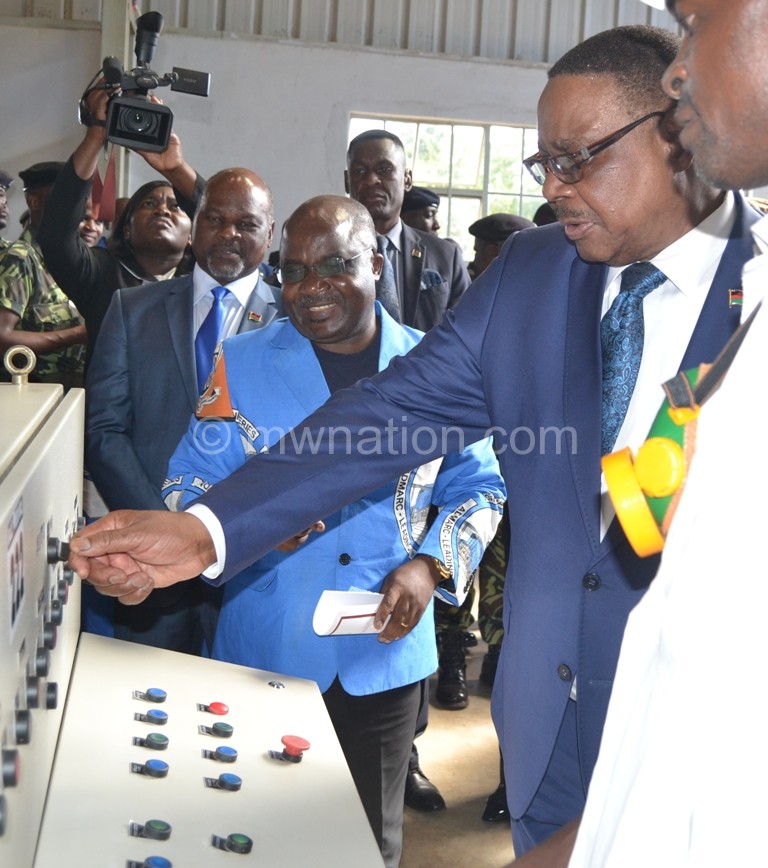Pay good prices, APM tells cotton buyers
President Peter Mutharika has said government is closely monitoring events in the cotton industry, expressing optimism that the Cotton Council of Malawi will have the powers to protect both growers and buyers in the industry.
Speaking at the inauguration of a K5 billion (about $7.2million) cotton ginnery in Balaka on Monday, Mutharika said some ginners (buyers) rip off growers by offering them poor prices not in line with the cost of production.

Over 150 000 cotton farmers from Eastern Region and Neno are set to benefit from the cotton ginnery, which will be operated by Agriculture Development and Marketing Corporation (Admarc) and was built by Apollo International Limited of India.
The Balaka cotton ginnery, set to create jobs for close to 200 people, is part of $50 million (about K33 billion) Indian line of credit (LoC) whose construction started in 2012. The other ginneries built with the same LoC are at Ngabu in Chikwawa and Ngara in Karonga.

Said Mutharika: “Any exploitation of our farmers must stop at once. If we catch you, we will deal with you unsparingly according to the law. Everyone must earn what they deserve.
“Our farmers must earn what they deserve. As an investor, you must earn what you deserve, but not by exploiting others. We are watching you.”
He said the opening of the ginnery symbolises Malawi’s path to industrialisation, exports and job creation, stressing that the new direction resonates well with Malawi’s drive to become a producing and exporting nation.
“We are establishing these factories because we want to create jobs for Malawians. We are adding value to our cotton through ginning, yarn manufacturing, weaving, producing cotton textiles and producing oil and animal feed within the country,” he said.
Admarc board chairperson James Masumbu said the produce trader wants to promote commodity marketing of strategic crops with export potential such as cotton, which can contribute to Malawi’s economy through foreign exchange.
Malawi heavily relies on tobacco, which contributes about 60 percent to foreign exchange earnings.
Masumbu said each of the three ginneries in Chikwawa, Karonga and Balaka have the capacity to process 200 tonnes of seed cotton and 15 bales of cotton lint per day.
“The optimal ginning capacity for the three ginneries is 60 000 tonnes of seed cotton. At full capacity, therefore, each ginnery has the potential to employ 196 people. The ginneries will also provide a ready market and outlet for about 150 000 cotton growers,” he said.





